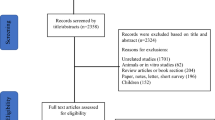Abstract
The purpose of this study was to compare the efficacy of individual and group cognitive behavioral therapy for insomnia (CBT-I) in outpatients with primary insomnia diagnosed by DSM-IV-TR. The participants were 20 individually treated (I-CBT-I) and 25 treated in a group therapy format (three to five patients per group) (G-CBT-I), which showed no significant difference regarding demographic variables between groups. The same components of CBT-I stimulus control therapy, sleep restriction therapy, cognitive therapy, and sleep hygiene education were applied on both groups. The shortterm outcome (4 weeks after treatment) was measured by sleep logs, actigraphy, the Pittsburgh Sleep Quality Index (PSQI), and the Dysfunctional Beliefs and Attitudes about Sleep Scale (DBAS), and was compared between I-CBT-I and G-CBT-I. The results indicated that CBT-I was effective in improving subjective and objective sleep parameters and subjective sleep evaluations for both individual and group treatment. However, I-CBT-I resulted in significantly better improvements over G-CBT-I, in (i) objective and subjective sleep onset latency time, (ii) objective sleep efficacy and moving time during sleeping, (iii) overall sleep quality and duration of actual sleep time in PSQI, (iv) consequences of insomnia, control and predictability of sleep, sleep requirement expectation, and sleep-promoting practices in DBAS. The present study suggested the superiority of I-CBT-I over G-CBT-I in clinical settings, and further evaluations are necessary.
Similar content being viewed by others
References
American Psychiatric Association. Diagnostic and Statistical Manual of Mental Disorders, 4th edn. text version (DSM-IV-TR). American Psychiatric Association: Washington, DC, 2000.
American Academy of Sleep Medicine. The International Classification of Sleep Disorders, 2nd edn. (ICSD-2), Diagnostic and Coding Manual, American Academy of Sleep Medicine: Westchester, 2005.
Morin CM, Hauri PJ, Espie CA, Spielman AJ, Buysse DJ, Bootzin RR. Nonpharmacologic treatment of chronic insomnia. An American Academy of Sleep Medicine review. Sleep 1999; 22: 1134–56.
Morin CM, Bootzin RR, Buysse DJ, Edinger JD, Espie CA, Lichstein KL. Psychological and behavioral treatment of insomnia: update of the recent evidence (1998–2004). Sleep 2006; 29: 1398–414.
Morin CM. Psychological and behavioral treatments for insomnia I: approaches and efficacy. In: Kryeger MH, Roth T, Dement WC, eds. Principles and Practice of Sleep Medicine, 5th edn. Elsevier Sanders: Philadelphia, PA, 2011; 866–83.
Edinger JD, Means MK, Carney CE, Manber R. Psychological and behavioral treatments of insomnia II: implementation and specific populations. In: Kryeger MH, Roth T, Dement WC, eds. Principles and Practice of Sleep Medicine, 5th edn. Elsevier Sanders: Philadelphia, PA, 2011; 884–904.
Morin CM, Culbert JP, Schwartz SM. Nonpharmacological interventions for insomnia: a meta-analysis of treatment efficacy. Am. J. Psychiatry 1994; 151: 1172–80.
Bastien CH, Morin CM, Ouellet MC, Blais FC, Bouchard S. Cognitive-behavioral therapy for insomnia: comparison of individual therapy, group therapy, and telephone consultations. J. Consult. Clin. Psychol. 2004; 72: 653–9.
Verbeek IH, Konings GM, Aldenkamp AP, Declerck AC, Klip EC. Cognitive behavioral treatment in clinically referred chronic insomniacs: group versus individual treatment. Behav. Sleep Med. 2006; 4: 135–51.
Edinger JD, Means MK. Cognitive-behavioral therapy for primary insomnia. Clin. Psychol. Rev. 2005; 25: 539–58.
Sato M, Yamadera W, Matsushima M, Itoh H, Nakayama K. Clinical efficacy of individual cognitive behavior therapy for psychophysiological insomnia in 20 outpatients. Psychiatry Clin. Neurosci. 2010; 64: 187–95.
Yamadera W. The clinical trial of group cognitive behavioral therapy for primary insomnia in outpatients. Sleep Biol. Rhythms 2011; 9: 259.
Kawazoe Y, Wada K, Sato S. 47 cases of sleep apnea detected by routine polygraphic studies. Jpn. J. Clin. Psychiatry 1986; 15: 1663–71. (in Japanese).
Inagaki A, Inada T. Dose equivalence of psychotropic drugs 2006-version. Jpn. J. Clin. Psychopharmacol. 2006; 9: 1443–7. (in Japanese).
Buysse D, Reynolds C III, Monk T, Berman SR, Kupfer DJ. The Pittsburgh Sleep Quality Index: A new instrument for psychiatric practice and research. Psychiatry Res. 1989; 28: 193–213.
Morin CM, Vallières A, Ivers H. Dysfunctional Beliefs and Attitudes about Sleep (DBAS): validation of a brief version (DBAS-16). Sleep 2007; 30: 1547–54.
Morin CM, Stone J, Trinkle D, Mercer J, Remsberg S. Dysfunctional beliefs and attitudes about sleep among older adults with and without insomnia complaints. Psychol. Aging 1993; 8: 463–7.
Cole RJ, Kripke DF, Gruen W, Mullaney DJ, Gillin JC. Automatic sleep/wake identification from wrist activity. Sleep 1992; 15: 461–9.
Sadeh A, Sharkey KM, Carskadon MA. Activity-based sleep-wake identification: an empirical test of methodological issues. Sleep 1994; 17: 201–7.
Doi Y, Minowa M, Uchiyama M et al. Psychometric assessment of subjective sleep quality using the Japanese version of the Pittsburgh Sleep Quality Index (PSQI-J) in psychiatric disordered and control subjects. Psychiatry Res. 2000; 97: 165–72.
Munezawa T, Morin CM, Inoue Y, Nedate K. Dysfunctional beliefs and attitudes about sleep scale Japanese version. Jpn. J. Sleep Med. 2009; 3: 396–403.
Sato M, Ohbuchi K, Yamadera W, Itoh H, Sasaki M, Ushijima S. Correlations between subjective evaluation about own sleep and that of objective evaluation in psychophysiological insomnia. Sleep Biol. Rythms 2003; 1: 139–40.
Currie SR, Clark S, Hodgins DC, El-Guebaly N. Randomized controlled trial of brief cognitive-behavioural interventions for insomnia in recovering alcoholics. Addiction 2004; 99: 1121–32.
Brown JS, Sellwood K, Beecham JK et al. Outcome, costs and patient engagement for group and individual CBT for depression: a naturalistic clinical study. Behav. Cogn. Psychother. 2011; 39: 355–8.
Craigie MA, Nathan P. A nonrandomized effectiveness comparison of broad-spectrum group CBT to individual CBT for depressed outpatients in a community mental health setting. Behav. Ther. 2009; 40: 302–14.
Author information
Authors and Affiliations
Corresponding author
Rights and permissions
About this article
Cite this article
Yamadera, W., Sato, M., Harada, D. et al. Comparisons of short-term efficacy between individual and group cognitive behavioral therapy for primary insomnia. Sleep Biol. Rhythms 11, 176–184 (2013). https://doi.org/10.1111/sbr.12019
Accepted:
Published:
Issue Date:
DOI: https://doi.org/10.1111/sbr.12019




